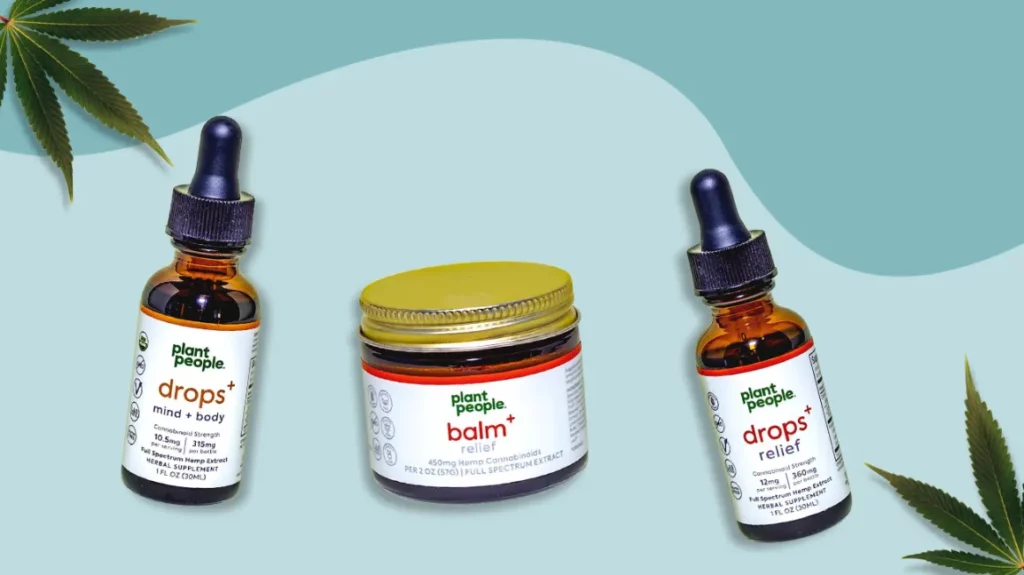The cannabis plants; hemp and marijuana, contain various compounds, including cannabinoids, terpenes, and flavonoids. No Cap Hemp Co Delta 10 THC products is one of the major cannabinoids in cannabis plants, infused into products, such as oils. This article discusses the differences between CBD oil and medical marijuana, including their effects, benefits, and psychotropic characteristics.
Recently, marijuana has taken the world by storm as a potent medical treatment. Experts have discovered many new ways of taking marijuana, including capsules, creams, edibles, and tinctures. According to research, you may use medical marijuana to treat various ailments such as sleep disorders, cancer-related pain, inflammation, anxiety, mood disorders, and appetite problems. CBD is also closely related to medical marijuana but very different. People often confuse CBD and medical marijuana. However, medical marijuana has been popular to some people, but as CBD became more popular over the years, most people wondered whether it was another kind of medical marijuana. Consequently, these two are very different in their making, uses, and effects. Herein is the difference between CBD oil and medical marijuana.
What is Medical Marijuana?
Medical marijuana is similar to recreational marijuana. The difference is that medical marijuana is used for medical purposes and is extracted from the leaves and dried flowers of the cannabis plant. Traditionally, it was smoked, but you can take it in other ways, such as edibles, or inhale it through vape pens. Medical marijuana has a high THC or tetrahydrocannabinol ratio. THC is over a hundred active substances called cannabinoids in the cannabis plant. These cannabinoids interact with receptors in the body to adjust the normal neurotransmission to cause ramifications.
THC is famously known for its euphoric effects. In other words, THC can alter your mind causing you to feel high. However, the cannabinoid also causes medical effects, including pain and nausea alleviation.
What is CBD?
According to Mead (2017), cannabidiol (CBD) is one of the cannabinoids extracted from the cannabis plant. It is extracted from the plant\’s leaves, stalks, and buds. Another compound of the cannabis plant is THC. CBD interacts with different receptors from THC, thus causing distinct effects. Research has demonstrated that both compounds can alleviate certain symptoms or treat some medical and mental health situations.
Moreover, Cannabidiol Gummies doesn\’t create a high feeling. The cannabis strains used to make recreational and medical marijuana have low CBD. Therefore, you should begin with a strain of cannabis containing higher levels of CBD to get CBD products.
Since CBD products are a high accumulation of the CBD compound, they have little or no THC amounts. Therefore, CBD products are so different from medical marijuana. The former doesn\’t have the intoxicative characteristics caused by THC. However, CBD also has medicinal effects. Although CBD research is in the early stages, researchers believe that CBD may lower pain, anxiety, and inflammation.
Additionally, people who don\’t want to experience THC\’s psychoactive effect can turn to CBD products. For instance, the Food and Drug Administration (FDA) recently approved the first CBD product for medical purposes to treat epilepsy in children. Patra et al. (2019) demonstrated that CBD could lower seizures and related behaviors in animal models.
Differences Between CBD Oil and THC
CBD (cannabidiol) and THC (tetrahydrocannabinol) have become hotly contested topics. Both are natural plant ingredients from cannabis sativa. Below are some of the differences between CBD oil and THC.
Psychotropic Character
THC is popularly known for its high sensational feeling. Contrarily, CBD is regarded as non-psychoactive, meaning it doesn\’t alter your mind. However, CBD may have trace amounts of THC but not exceeding 0.3%, which isn\’t enough to alter the mind. Many people have turned to CBD as a natural compound to treat various ailments such as pain and inflammation. Hammell et al. (2016) showed that CBD alleviated inflammation and pain in a rat model of arthritis. Blessing et al. (2015) revealed CBD as a powerful treatment for anxiety. Therefore, you can enjoy the benefits of CBD without a high feeling.
Medicinal Benefits
THC and CBD interact with your body\’s endocannabinoid system (ECS), which maintains stability in your body when it goes out of balance. Researchers state that ECS plays a critical role in maintaining human health. It regulates mood, sleep, memory, fertility, reproduction, appetite, and anxiety. While interacting with the ECS, they have different properties and medical advantages.
Side Effects
CBD has rarely been linked to identifiable adverse effects, even in large doses. WHO (World Health Organization) states that CBD is tolerable in all patients with no serious adverse effects or signs of toxicity. Experts say that if there are noticeable side effects, it\’s because of CBD interaction with other drugs the consumer may be taking. As a result, you should always consider talking to a doctor before taking any CBD product, particularly if you\’re on other drugs.
On the contrary, THC is well-known for several side effects, especially when taken in high doses. These include coordination problems, red eyes, dry mouth, sluggish reaction time, increased heart rate, and memory loss. Often, these adverse effects are related to the compound\’s intoxicating qualities.
Drug Testing
Some places may require you to do a drug test. These drug tests look for chemicals associated with THC. Thus you can anticipate for THC to appear in a drug test. Therefore, if a drug test awaits you, you can opt not to take THC products to avoid legal trouble, particularly in areas where THC is illegal. CBD products may, however, contain minute levels of THC, which would not cause psychoactive side effects. However, be warned that it may still appear in a drug test. Keep off cannabis products completely when anticipating a drug test to be safe.
Conclusion
However, both compounds have separate properties that set them apart. THC is famously known for its psychoactive effects or high feeling, while Buy CBD Oil is commonly known for its health effects. Consequently, THC is also known for medicinal benefits but is mostly used for recreational purposes. However, consult your doctor before using either of the compounds for any medical reason. More research is required to make conclusive remarks. THC is known to cause adverse effects, especially in high dosages, but CBD\’s adverse effects are rare. IF you notice negative effects with CBD, it could be due to interactions with other drugs you\’re taking. If you notice any reactions, you should quit the product immediately and seek medical counsel.
References
Blessing, E. M., Steenkamp, M. M., Manzanares, J., & Marmar, C. R. (2015). Cannabidiol is a potential treatment for anxiety disorders. Neurotherapeutics, 12(4), 825-836.
Hammell, D. C., Zhang, L. P., Ma, F., Abshire, S. M., McIlwrath, S. L., Stinchcomb, A. L., & Westlund, K. N. (2016). Transdermal cannabidiol reduces inflammation and pain‐related behaviors in a rat model of arthritis. European Journal of Pain, 20(6), 936-948.
Mead, A. (2017). The legal status of cannabis (marijuana) and cannabidiol (CBD) under US law. Epilepsy & Behavior, 70, 288-291.
Patra, P. H., Barker‐Haliski, M., White, H. S., Whalley, B. J., Glyn, S., Sandhu, H. & McNeish, A. J. (2019). Cannabidiol reduces seizures and associated behavioral comorbidities in animal seizure and epilepsy models. Epilepsia, 60(2), 303-314.
- Does CBD Oil Help You Sleep Better? - November 25, 2022
- Does CBD Oil Help With Sunburn? - November 25, 2022
- Does CBD Oil Help Relieve Acid Reflux - November 25, 2022






